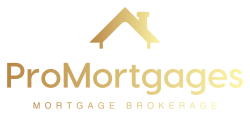Self-Employed Financing Solutions
Solutions for Self-Employed Homebuyers in Canada: Navigating the Mortgage Landscape
For self-employed individuals in Canada, securing a mortgage can sometimes feel like navigating a labyrinth of paperwork, requirements, and hurdles. For instance, traditional employment verification methods, such as pay stubs, may not accurately reflect the income stability and financial capacity of entrepreneurs, freelancers, and small business owners. However, Self-Employed Financing Solutions are available to help self-employed homebuyers achieve their homeownership goals. These tailored solutions are designed specifically to address the unique needs of self-employed individuals in securing a mortgage.

Firstly, you can explore Prime Lending Solutions if you have a solid financial history and can demonstrate a stable income, even though you don’t receive traditional paychecks. On the other hand, if you face challenges with credit or income documentation, Alternate Lending might be a better fit, offering more flexible financing options for those with unique financial situations.
Moreover, if you’re planning to purchase a property for business use or invest in real estate, commercial mortgages can be an ideal solution. These mortgages cater to those in business, helping you secure financing for commercial properties.
In addition, self-employed individuals can benefit from various residential mortgage solutions that are specifically designed to address their needs. If you’re looking to build or renovate, construction financing can provide funds for your home-building or renovation projects.
Additionally, refinancing your current mortgage could provide you with better rates or more favorable terms. Refinancing options give you access to competitive plans for reducing monthly payments or consolidating debt.
Lastly, if you’re struggling with self-employment income verification, self-employed financing solutions are available to help you secure financing without the need for traditional income proof.
Stated Income Mortgages:
Bank Statement Mortgages:
Gross-Up Income Mortgages:
Non-Traditional Income Verification:
Building a Strong Credit Profile:
Working with a Mortgage Broker:
Mortgage brokers specializing in Self-Employed Financing Solutions can be valuable allies for self-employed homebuyers in Canada. These brokers have expertise in navigating the complexities of mortgage financing for self-employed individuals and can help identify lenders offering mortgage products tailored to the unique needs of entrepreneurs, freelancers, and small business owners. Mortgage brokers can provide personalized guidance, advice, and assistance throughout the mortgage application process, helping self-employed homebuyers find the best financing solutions for their specific circumstances.


 by Bhasha Infotech
by Bhasha Infotech